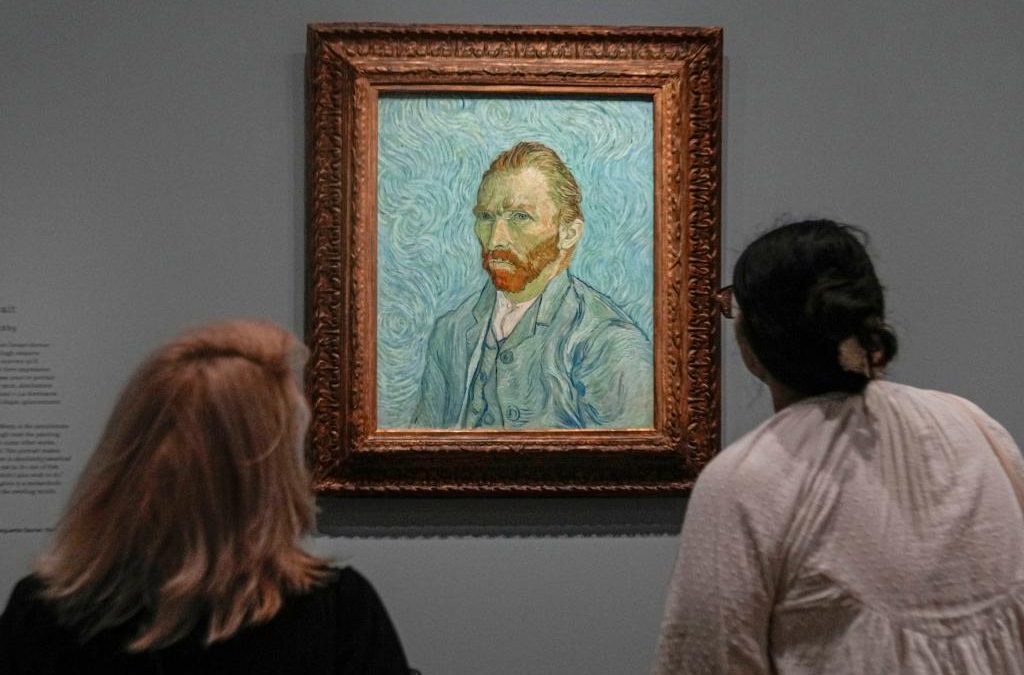Lend him an ear.
The post-Impressionist painter Vincent van Gogh provides posthumous insight into his life and work as part of a new exhibit that draws on advanced, generative artificial intelligence technology.
A virtual avatar of the artist answers questions from visitors to “Van Gogh in Auvers-sur-Oise: The Final Months” at the Musée d’Orsay in Paris.
The responses are inspired by an analysis of the numerous letters Van Gogh wrote — mostly to his brother Theo — before taking his own life in July 1890 with a revolver.
“This is still a subject of speculation among historians and specialists. The truth of my motivation remains a mystery even to me. Thank you for understanding my mental health struggles,” the AI incarnation says when asked why the painter shot himself in the chest at 37, per the Guardian.
Van Gogh’s clone also clarifies that he did not cut off his left ear, but rather “part of my earlobe,” which he gave to a maid in a brothel in Arles, France, during an emotional evening in 1888.
The exhibit, which also incorporates virtual reality elements, promises to be a “revelation” regarding an artist “everyone knew,” Musée d’Orsay president Christophe Leribault told the outlet.
“We have many letters from Van Gogh. It is rare that an artist left so many manuscripts and from these it was possible to develop software to have Van Gogh’s responses to our questions, though of course it remains a game. With the VR experience we can immerse ourselves in Van Gogh’s world via the artist’s palette,” he said.
Leribault added, “This is a very unusual and powerful exhibition showing that despite his struggles during the last two months of his life, he continued to experiment and we see a great variety of subjects and how inventive he was with paint, canvas and frame.”

Running through Feb. 4, 2024, the exhibit focuses on the two months before Van Gogh’s death.
Featured are about 20 of Van Gogh’s drawings and around 40 paintings, including 11 on unusual elongated canvases.
“In this unique exhibition, we see an astonishing variety of paintings. This work carries much weight because it is the period in which he will end his life. The question everyone asks is, “Why?” and the answer is that we just don’t know. Did he feel he had finished his oeuvre, or was it an ultimate crisis that was bigger than him?” exhibition curator Emmanuel Coquery told the Guardian.
“We also wanted to break the myth of the cursed artist who was unloved and unrecognized when he died. He was in full ascension at the time, his paintings had begun to sell and he was recognized.”
If you are struggling with suicidal thoughts or are experiencing a mental health crisis and live in New York City, you can call 1-888-NYC-WELL for free and confidential crisis counseling. If you live outside the five boroughs, you can dial the 24/7 National Suicide Prevention hotline at 988 or go to SuicidePreventionLifeline.org.
Source




